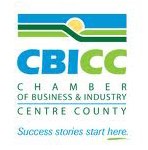There are different schools of thought on ways to accelerate paying of your mortgage. Most people are familiar with the 15-year mortgage versus the 30-year mortgage. The idea is a simple one; you pay a higher payment in order to pay off the mortgage faster. Other people are familiar with the bi-monthly plan. With this type of plan, you end up paying an extra payment in a 12-month billing cycle accomplishing your goals six years earlier. Some people add an extra dollar to each monthly payment. For example, you add an extra $1 to your first mortgage payment, $2 to the second, $3 to the third and so on. If you use this strategy, you would pay off your loan in roughly 22 years. These strategies are designed to accelerate the payoff of your mortgage.
I think the bigger question isn’t necessarily how to pay off your home, but when should you pay off your home? For the average American who is a good steward of their assets, they should be thinking about the tax repercussions of deferring taxes by investing money in “tax-qualified retirement plans”? Why would you want to defer taxes and also pay off your mortgage and eliminate one of your best tax deductions? Wouldn’t that be counter-productive? For those of you in retirement, you may start to realize that even though your income stream has decreased, your taxes have increased. Liquidity, safety, and rate of return are the primary elements of a prudent investment; wouldn’t you agree? Does your current mortgage structure meet these criteria? Do you have an Accelerated Mortgage Payoff Program (AMPP)?
Back to the primary question; what is the quickest way to payoff your mortgage? Take a 30-year mortgage, pay the 15-year payment (obtain from your lender), and then take your tax refund and apply that to your mortgage payment annually. Your tax refund is real dollars, not just numbers on a tax return. This is savings and not just spending money. By implementing this, your mortgage can be paid off in roughly 13 to 14 years.
A thought to ponder is would your house paid off in both of the following scenarios; 1) You hold the deed to your home (does equity earn a rate of return?) 2) If you have the cash to pen a check sitting in a safe and liquid side fund, isn’t the house also paid off?
Education leads to clarity, clarity leads to confidence, and confidence can lead to peace of mind. Are you ready to get coached up?




 Clarity Coaching Tips
Clarity Coaching Tips Common Sense Videos
Common Sense Videos It’s Your Money
It’s Your Money
